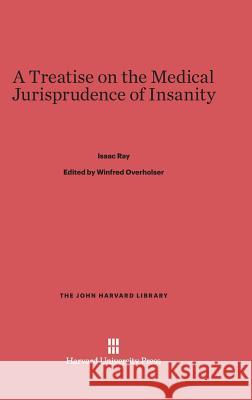A Treatise on the Medical Jurisprudence of Insanity » książka
A Treatise on the Medical Jurisprudence of Insanity
ISBN-13: 9780674863675 / Angielski / Twarda / 1962 / 393 str.
This historic book may have numerous typos and missing text. Purchasers can download a free scanned copy of the original book (without typos) from the publisher. Not indexed. Not illustrated. 1838 Excerpt: ...with the tenor of his past history or character. In homicidal insanity, a man murders his wife, children, or others to whom he is tenderly attached; this the criminal never does, unless to gratify some evil passion, or gain some other selfish end, too obvious to be overlooked in the slightest investigation. 165. A stronger contrast than is presented, in every respect, between the homicidal act of the real criminal and that of the monomaniac, can hardly be imagined; and yet we are obliged to acknowledge that men of learning and intelligence have often refused to acknowledge it, though, undoubtedly, the number of such is fast diminishing. Much of the unwillingness manifested by juries to abide by the result, to which the above distinctions xvould necessarily lead them, arises from those feelings of horror and indignation excited by the perpetration of coldblooded murders, which incapacitate them from discriminating with their usual acuteness between the various causes and motives of human action. Besides, notwithstanding the great similarity, for the most part, between these cases, one will occasionally occur, where, from defect of information, no little knowledge of insanity and of human nature is required to find one's way through the mists of doubt and obscurity in which it is involved. When, therefore, as in the case of jurors generally, the mind is not fitted by any of this preparation so necessary to a successful investigation of difficult cases, it seizes only on some of the most obvious though perhaps least important points which they present, and of course the verdict will often be deplorably at variance with the dictates of true science. CHAPTER VIII. LEGAL CONSEQUENCES OF MANIA. 166. Man, being destined for the social condition, has r...











